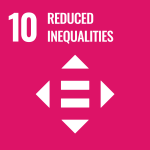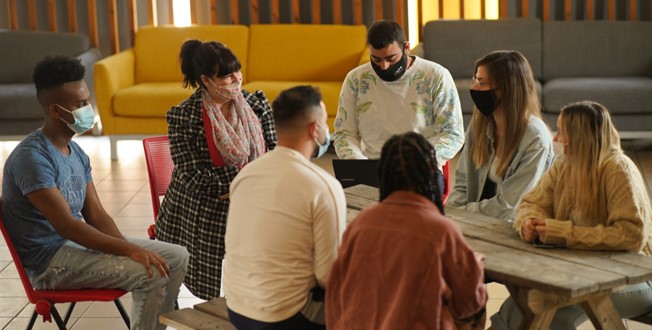 Goal 10: Reduced Inequalities
Goal 10: Reduced Inequalities
REDUCE INEQUALITY WITHIN AND AMONG COUNTRIES
Research
Prof. Tali Kristal, of the Herta and Paul Amir Faculty of Social Sciences, recently published an article in Work and Occupation offering a new account of rising inequality by observing correlation between computerization and earnings. Prof. Kristal argues that as computers transform work into more knowledge-intensive activity, occupations located at critical junctions of information flow gain greater structural power, and thereby higher wages.
The Journal of Ethnic and Migration Studies features Dr. Yuval Feinstein of the Herta and Paul Amir Faculty of Social Sciences, and Dr. Bart Bonikowski’s recent work on nationalism and anti-immigrant attitudes. The authors argue that nations with a history of precarious sovereignty, victimhood and exceptionalism narratives can provide a fertile environment for the exclusionary appeals of radical-right political actors.
Public Engagement
 Under-represented students from Israel’s geographical and social periphery benefit from our campus-wide initiative promoting social mobility. The flagship Social Mobility Program offers comprehensive financial, academic, and social support services to students from socio- economically disadvantaged backgrounds throughout their studies – including critical career counseling.
Under-represented students from Israel’s geographical and social periphery benefit from our campus-wide initiative promoting social mobility. The flagship Social Mobility Program offers comprehensive financial, academic, and social support services to students from socio- economically disadvantaged backgrounds throughout their studies – including critical career counseling.
Haifa’s Legal Feminism Clinic, headed by Adv. Vardit Avidan,from the Faculty of Law, conducted a series of surveys at Israeli hospitals and found that many women who came to the hospital after being sexually assaulted had to wait several hours to be seen in the ER, were examined by male doctors, and were sometimes treated judgmentally or disparagingly by social workers. The team learned that hospitals lack sufficient post-rape examination rooms and that many forensic examination kits are discarded soon after being used.
Learning & Students
Increasingly, government services are available online, and our Law, Technology and Cyber Clinic works with people who have difficulty accessing online services. For example, in 2021 Israel Postal Service transitioned to appointment booking exclusively through an online application. The application is not accessible for people who are not proficient in Hebrew, English or Arabic (such as Russian speaking individuals or Amharic speaking individuals) and especially problematic for people who are not technologically literate.
Beyond providing access to quality mediation, the Leon Charney Dispute Resolution Clinic believes that dispute resolution tools can empower individuals from marginalized populations and enable them to promote their interests while conserving meaningful relationships. Therefore, the Clinic facilitates mediation workshops in various peripheral communities, such as special communal housing for people with disabilities, at-risk youth boarding schools, and women’s community centers.

Operations
In partnership with Co-Impact: Partnership for Breakthrough in Arab Employment, University of Haifa’s Human Resources Department was able to ensure that the University exceeded its target in that over 12% of its 2020 recruits identified as Arab.
We currently enroll the a large number of students of Ethiopian descent of any university in Israel. We offer tailored support packages to enable access to higher education, and successful completion, including academic support, as well as tuition and subsistence scholarships. The Office of the Dean of Students employs an advisor for Israeli- Ethiopian students to guide them in accessing University services.

